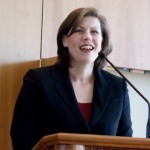Podcast: Download (7.2MB)
Subscribe: RSS
 As we begin our final discussion about the tee of life and the Book of Mormon, I quote the words of C. Wilfred Griggs, professor of ancient scripture: “The Book of Mormon brought the tree of life to our attention long before modern scholarship revealed how common the tree was in ancient history. The symbol of that tree pervades the art and literature of every Mediterranean culture from centuries before the time of Lehi until well after the time of Moroni. This fact, and the fact that Lehi and Nephi portrayed the spiritual meaning of that symbol much the same way other ancient cultures portrayed it, demonstrates that the Book of Mormon is an ancient text, not an invention of the 19th-century social milieu.”
As we begin our final discussion about the tee of life and the Book of Mormon, I quote the words of C. Wilfred Griggs, professor of ancient scripture: “The Book of Mormon brought the tree of life to our attention long before modern scholarship revealed how common the tree was in ancient history. The symbol of that tree pervades the art and literature of every Mediterranean culture from centuries before the time of Lehi until well after the time of Moroni. This fact, and the fact that Lehi and Nephi portrayed the spiritual meaning of that symbol much the same way other ancient cultures portrayed it, demonstrates that the Book of Mormon is an ancient text, not an invention of the 19th-century social milieu.”
Brother Ash is author of the book Shaken Faith Syndrome: Strengthening One’s Testimony in the Face of Criticism and Doubt, as well as the book, of Faith and Reason: 80 Evidences Supporting the Prophet Joseph Smith. Both books are available for purchase online through the FairMormon Bookstore. Tell your friends about the Mormon Fair-Cast. Share a link on your Facebook page and help increase the popularity of the Mormon Fair-Cast by subscribing to this podcast in iTunes, and by rating it and writing a review.
The views and opinions expressed in the podcast may not reflect those of the Church of Jesus Christ of Latter-day Saints or that of FairMormon



